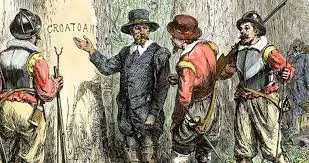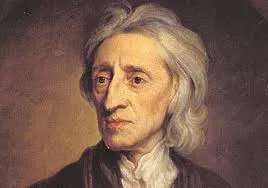King George III was probably the finest human being of British authority that the colonists had dealt with. Again, Britain was in chaos, especially financially, mainly because of the Seven Years’ War. The colonist erected a statue of him in New York City. This does not mean that the colonists were happy. The diversities from other nations were drifting in. Back in time, there is the highly reasonable and logical theory that the former denizens of assimilated into the small indigenous nation of the Croatoan. However, this is damped by various folks in diverse situations communicating “CROATOAN.”

Stateless living and individual sovereignty were treasures of the colonists, even among the ones who remained fiercely loyal to Britain. With more and greater cultures and beliefs springing forth in the colonies, concepts like liberty and freedom strengthened and grew. Back in England, the British just did grasp that the colonists were essentially content to be British subjects. When the series of laws were passed that encroached upon the colonists, they were most upset at the lack of respect and fair treatment which should be afforded a British subject.
Most serious arguments which deteriorate into fights among friends and spouses are usually over the pettiest of issues. The several Acts suddenly made divorce a thinkable option. For example, a few tea merchants/smugglers among the colonists ended up where their wares cost more than when the HEIC sold tea directly to the colonies. They, in their embarrassed state, were the ones who beat the drums of “taxation without representation.”
Still, the colonists were as a dissatisfied child who does not even entertain leaving home, but rather works out his/her own solutions to his/her parents’ deficiencies and effects manipulations at every opportunity. The American colonies were as the world’s Free Thought Project. Ten prestigious colleges/universities remain to this day, headed by what is now called Harvard. Religious diversity and tolerance and writings of folks, such as Cicero and John Locke, reflected an echo of Enlightenment in America. Denizens of other nations than England came to the lands to share in what the colonists had. There was an aura of positiveness that hovered over the land.

In spite of the relatively minor discontent over the poor dealings of Parliament, et al., and armed revolts along the lines of the blocked westward expansion via the 1763 Proclamation; there was no talk of war. The Stamp Act did not affect most occupations in the colonies, even though the outcry was great. Amidst the clamor, the demon seed put forth its first shoots and leaves. Samuel Adams and friends formed their own hybrid secret society known as the Sons of Liberty.
In many ways, the Revolutionary War had already broken out. Many more tea destructions followed the famed Boston Tea Party. King George III attempted to appease Samuel Adams but was rebuffed. The “Patriots” blamed Parliament, not the King, but backed him into a corner. One might readily dismiss secret societies role in the American Revolution, especially that of Freemasonry. It can be debated that these prominent men networked and formed Mastermind Alliances with each other, and the Lodges were merely convenient geographic locations. Please hold that thought until later.
In September 1774, a group of colonial delegates met in Philadelphia to address a list of grievances against the British crown. This was a switch from the onus being on Parliament and its marriage with the trading companies and other high British industries. This was the First Continental Congress. Now, they did not demand their independence. Certainly, the issues of taxation without representation and British troops in the colonies without their consent were chief. Additionally, there was a declaration of rights which included assembly, trial by jury, and life, liberty, and private property. (Remember this fact.)
This Age of Enlightenment resonated and reverberated from Europe to America and back, feeding off each and gaining momentum. King George III had risked so much to assist the colonies, especially in the face of opposition. Now he was portrayed as a beast. The result was that British troops, lots of them, landed at Boston and moved toward Concord and Lexington on April 19, 1775. Coincidently, a few days later Adam Weishaupt founded the Illuminati.
In Part 6, we will discuss: before there was Waterloo, America happened.
https://steemit.com/anarchy/@aedroberts/so-you-think-you-know-american-history-part-1
https://steemit.com/anarchy/@aedroberts/so-you-think-you-know-american-history-part-2
https://steemit.com/anarchy/@aedroberts/so-you-think-you-know-american-history-part-3
https://steemit.com/anarchy/@aedroberts/so-you-think-you-know-american-history-part-4